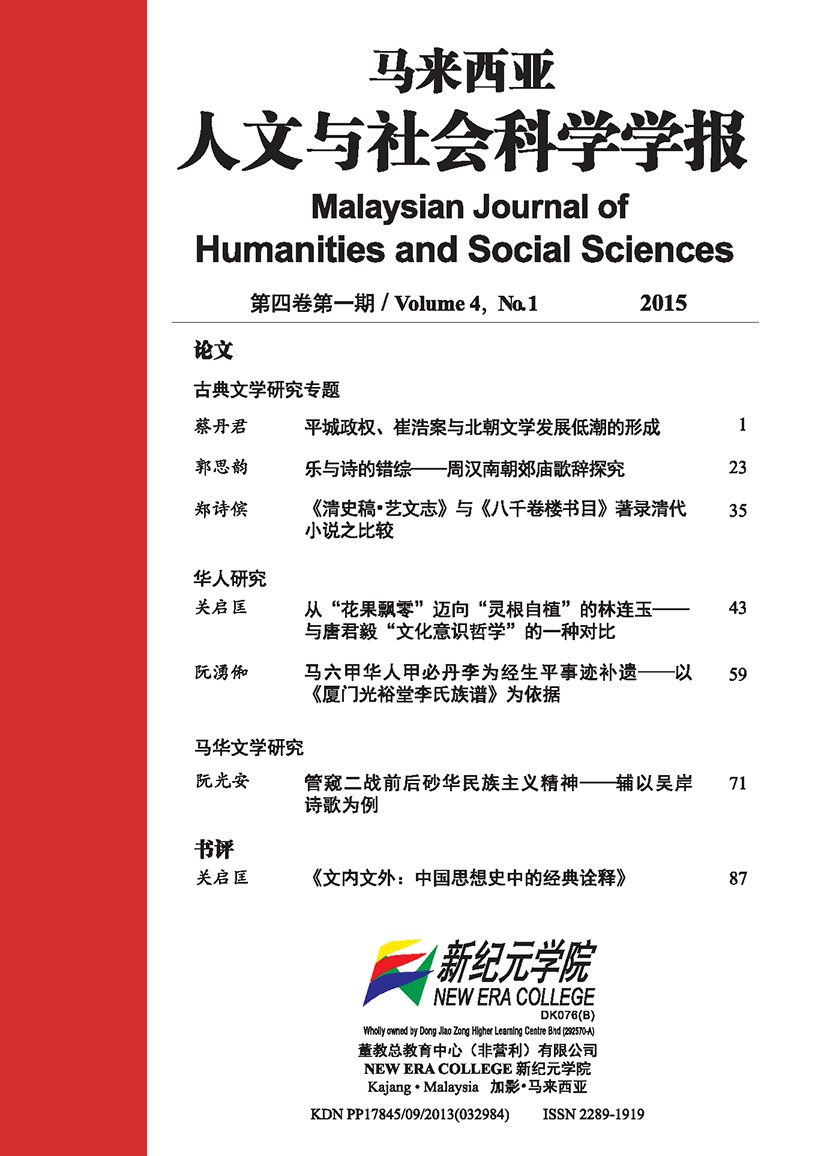从“花果飘零"迈向“灵根自植"的林连玉一与唐君毅“文化意识哲学”的一种对比 Lim Lian Geok's Transition from " Drifting Flowers and Fruits" towards "Self-planting of Spiritual Roots" from the Perspective of Tang Jun Yi 's Philosophy of Cultural Awareness
Keywords:
林连玉、唐君毅、灵根自植、海外华人思想, Lim Lian Geok, Tang Jun Yi, self-planting of spiritual roots, Chinese thoughtsAbstract
本文通过对千中国哲学家唐君毅与华文教育家林连玉对比,着重千诠释唐先生的“文化意识哲学”与林先生的具体实践,企图寻求一种“唐、林合论”相得益彰的可能。第二节,说明林连玉在马来亚立国之际,主张本土华人积极参与建国的国族论述,实可视为当代马来亚华人“灵根自植"的重要基础。另外,亦将唐君毅“文化意识哲学”的核心观念诠释出来,亦提出要作一种“常”与“变”之辨。第三节,尝试提出“唐、林合论”的诠释义含,亦指出唐君毅的哲思不仅具有“ 主体哲学”的意义,更是要回到一个内、外贯通的存有实境中加以论定。在“唐、林合论”的研究架构下,一方面彰显了唐君毅“文化意识哲学”诠释的纵深度,同时亦折射出林连玉具体实践的人文强度。依此对比性的研讨,亦得其确认林连玉在马来西亚所领导的华教运动,是一个海外华人“灵根自植"的杰出模式。
The purpose of this paper is to compare Tang Jun Yi's "philosophy of cultural awareness" and Lim Lian Geok's practical experiences. As Malaya fought for independence in the 1950s, Lim advocated the active participation of local Chinese in the process of nation building as the basis of "self-planting of spiritual roots". At the same time, Tang's ideas are interpreted to differentiate between what are considered "constant" and "change". By comparing the ideas of the two, one appreciates the depth of Tang's thoughts and the importance of the social movement advocated by Lim. It is through this comparison that Lim's idea of "self-planting of spiritual roots" is highlighted in the struggle for Chinese education by the local Chinese community.




